#Ben Edmonds
Explore tagged Tumblr posts
Text


MC5: An Oral Biography Of Rock's Most Revolutionary Band
7 notes
·
View notes
Text
The Rebel: Patti Smith
--I bring Tim Buckley's unreleased demo of the old folk tune ‘Wayfaring Stranger’ for Patti, and she talks about how the singer/songwriter was a favourite of Robert Mapplethorpe’s back in the early Brooklyn days, and chuckles when she recalls how she and her first partner in artistic crime would neck like high school kids to the Goodbye And Hello album. She was delighted when Jeff Buckley stopped by the recording sessions and added a high, ghostly vocal part to ‘Beneath The Southern Cross’, and even more delighted when he raced home and returned to the studio with an essrage, an Egyptian instrument he used to texture the track ‘Fireflies’.--
youtube
---
Ben Edmonds, MOJO, August 1996
To R.E.M.’s Michael Stipe, she is "one of the premier artists of my lifetime – I’ve blindly stolen from her for years." To Bob Dylan, she is "still the best, you know." She is one of rock ‘n’ roll’s true originals, and on her return to the fray after eight years of joy and tragedy lived out of the public eye, Patti Smith grants Ben Edmonds the most revealing interview of her career.
PATTI SMITH IS IN FULL SWAGGER, WORKING THE ROXY Theatre stage in LA with relaxed authority. She takes the stage alone, wearing a shapeless warm-up jacket with hood tightly framing her face, to deliver a fiery reading of ‘Piss Factory’. With each succeeding song she adds band members until her musical complement is complete. Left-hand man Lenny Kaye and drummer Jay Dee Daugherty are Patti Smith Group confederates, while bassist Tony Shanahan has played with Kaye and John Cale (and backed Patti on some solo dates last autumn). This core trio is augmented by Patti’s 23-year-old poetry protege Oliver Ray on rhythm guitar and — seated stage left behind impenetrable shades and cradling his guitar like some old CBGB's bluesman — Tom Verlaine.
Smith has a couple of wild cards up her sleeve as well. She introduces Bob Neuwirth as "the person who encouraged me to sing and gave me my first start," after the legendary personage – Bob Dylan road companion, Jim Morrison babysitter, painter, filmmaker, composer of ‘Mercedes Benz’ for Janis Joplin – has sung a typically wonderful song called ‘I Don't Think Of Her’. "Bobby has a new CD out [Look Up on Watermelon Records] on which I appear," Patti announces. "It's available almost nowhere."
Her son Jackson, 13, appears plugged in and joins the troupe for a romp through – are you ready? – ‘Smoke On The Water’. Jack and guitar stand nose to nose with the amp, noodling noisily as Lenny Kaye sings Deep Purple's stirring lament for the tragic death by fire of recording equipment. Mom makes the most of her vocal cameo, belting out "Fire in the sky-eee" in the most godawful screech you've ever heard. It's a small glimpse of what the future might have held had Patti chosen to become the singer of Blue Oyster Cult (for whom she wrote songs) instead of setting off on her crusade to save the soul of rock'n'roll with The Patti Smith Group.
The band has a homemade, slightly ragtag quality that reminds this audience member of nothing so much as the earliest Patti Smith Group when it consisted of Patti, Lenny and Richard Sohl. That trio "toured" California in 1974 to "promote" ‘Piss Factory’, and you felt like you were watching something invent itself right before your eves. This mini "tour" follows almost exactly the same path, and once again you feel like you're watching something in the exhilarating process of becoming.
They attack a fair number of familiar songs – ‘Ghost Dance’, ‘Rock'N'Roll Nigger’, ‘Dancing Barefoot’ (although, curiously, nothing from Dream Of Life) – with gusto. The 10 shows opening for Bob Dylan last winter seem to have jump-started this aggregation's chemistry, and they're now also capable of moments of transcendence that rival anything Patti's bands have attained in the past. ‘About A Boy’, her meditation on the loss of Kurt Cobain, has grown from humble acoustic beginnings into an oceanic noisefield than tonight is staggering. And their ‘Wicked Messenger’ ranks with the great rock rearrangements of Dylan songs. It's a treat that such a thing remains possible in 1996.
The small acoustic shows and guest spots she's done sporadically over the past year have been tentative in tone and occasionally awkward. She is not – nor does she have the slightest inclination to be – the punk tornado who ripped through this room 20 years ago, when the Roxy was LA's premier showcase club, hosting legendary engagements by Neil Young, Bruce Springsteen and Bob Marley, and live recordings by Frank Zappa, Talking Heads, Warren Zevon and others. But she has certainly regained every bit of the belief that the space is hers to command.
The sold-out house is evenly divided between the older soldiers who served in the rock revolution Patti Smith heralded in the early '70s and those who wish they could have been there, having heard their own heroes like Michael Stipe say that were it not for Patti Smith he wouldn't exist. The R.E.M. singer has been all over MTV News this week, quoted as saying that Patti's show at the Wiltern Theatre a few days earlier had been not simply the greatest concert he'd ever seen, but one of the greatest emotional experiences of his life. *
THE PATTI SMITH RESUME: ARRIVED IN NEW YORK FROM New Jersey in 1967 and wrote herself a new identity in concert with photographer Robert Mapplethorpe; wrote plays like Cowboy Mouth with Pulitzer Prize winner Sam Shepard one line at a time, pushing a battered typewriter back and forth across a Chelsea Hotel tabletop in a game of attitude chess; published small press volumes of hallucinogenic verse inhabited by James Joyce, Johnny Ace, Jesus Christ, Harry Houdini, Joan of Arc, James Brown, Georgia O'Keefe, the Paragons and the Jesters, Picasso and Rimbaud and Bob Dylan's dog; wrote poems, profiles and record review reveries for Creem and Rolling Stone; put her big ideas into embryonic practice at her Rock'N'Rimbaud readings accompanied by guitarist Lenny Kaye at St Mark's Church, New York's new poetry nirvana; released ‘Piss Factory’ b/w ‘Hey Joe’ in 1974 on their own Mer Records, now regarded as one of the first shots fired in the punk/indie revolt (though at the time it was a shot barely heard in the next block); released in 1975 a debut album Horses, a parable in spoken word and song for the declaration of self that adolescents itchy to slip their skins will probably respond to for generations to come; sounded a clarion call with her amped-to-the-teeth Patti Smith Group that has been answered only in part by punk rockers, alterna-nerds and riot grrrls; fell from a Tampa, Florida stage in 1977 to a concrete floor 14 feet below, breaking her neck; came out of traction and back into action with ‘Because The Night’, a hit single co-written with Bruce Springsteen, yet always gave equal time to noisy improvisational epics like ‘Radio Ethiopia’ that were unplayable on any radio format (and guaranteed to scare the living piss out of anyone attracted by her Brucie ballad); announced her retirement from public life in the shadow of her biggest-selling album (Wave); and immediately following her biggest concert ever (85,000 in an Italian football stadium on September 10, 1979) quietly married former MC5 guitarist Fred 'Sonic' Smith in 1980, and moved to an unassuming Detroit suburb to raise a family. In the next decade she raised her head above the parapet only once, with her 1988 album Dream Of Life.
Since 1990, Patti has suffered the loss of four of her closest comrades. Her best friend Robert Mapplethorpe was claimed by AIDS. Her piano player (and, after Lenny Kaye, longest-serving musical ally) Richard Sohl succumbed to heart failure. Then in late '94 her husband, soulmate, and hero of so many of her best songs (‘Because The Night’, ‘Frederick’, ‘Dream Of Life’), Fred 'Sonic' Smith, suddenly passed away, a shock compounded by the death of her brother and crew manager Todd Smith only a month later.
The release of a new album, Gone Again, and a limited return to live performance is part of a plan she and Fred had mapped out before his untimely passing. Yet there's no denying that these activities have now become, at least in part, a memorial to all her fallen comrades. This mission was launched in earnest last December when, at the personal invitation of Bob Dylan, she opened 10 of his shows on the East Coast, a pairing he dubbed The Paradise Lost Tour.
"A lot of girls have come along since Patti started," Dylan told a Boston audience the first of many times they duetted on his song ‘Dark Eyes’. "But Patti's still the best, you know." Then he kissed her. *
DRIVING TO PATTI'S HOUSE, I WAS THINKING ABOUT something she had told me recently. The subject was her desire to play only those places where she'd been treated well. I wondered, then, what places this might disqualify.
"Detroit," she said without hesitation. "They've never been that supportive of our work. I don't think Fred got the support from the music community that he was entitled to. The radio stations knew who he was and what he'd done, and they should've tipped their hat to him. I guess I feel somewhat bitter about that. Not for me. I don't care; but it hurt Fred deeply."
Patti will soon be moving back to New York. This move is not unexpected. Detroit was where she came to make her life with Fred. It was his town, his family, his roots, and there's probably no place she can turn here and not be confronted by a reminder of her late husband.
This has got to be especially true of their home, which they bought, furnished, and within which they created a family. Patti and Fred even saved it together, sandbagging the place when torrential rains and a rising lake very nearly flooded them out. Because the family was so reclusive, all sorts of rumours circulated about their domestic refuge. One had them living in a sumptuous lakefront estate, another pictured them in utter sub urban tract home anonymity. Neither turns out to be accurate.
They're not on the lake, though they could most certainly see it if there weren't so many other houses in the way. They live in a normal middle-class neighbourhood where many of the smallish homes sport obvious additions to accommodate expanding families, resulting in houses that are a little too big for their modest plots but never quite big enough to contain all the kids' stuff which litters the porches and short driveways. Yet there's no doubting which is the Smith residence. It's easy to spot, being the only castle on the block. A small castle, to be sure, really no bigger than most of the surrounding homes, but a towered and turreted castle all the same.
Seen from the insight, the tower contains the winding staircase that leads to the upper floor. The house is sparsely though comfortably furnished, in casual boho. The usual family stuff is posted on the fridge and scattered about; handmade birthday and Mother's Day cards, postcards, school meeting notices. If it weren't for the guitars and amplifiers in the living room, you'd never know this was the lair of musicians. Where you might expect to find a portrait of some revered family elder hangs a picture of honorary uncle Allen Ginsberg.
Once past the idea of amps in the living room, the closest we get to rock'n'roll excess is an extravagant selection of teas. Oliver Ray brews some camomile for Patti, whose stomach is acting up.
At 48, Patti Smith's hair is unashamedly lashed with gray and worn in simple braids. Her interview demeanour is pretty much as it's always been. She considers each query carefully and answers at length, not looking at her interviewer but staring at some private point beyond the opposite wall, a safe place she always returns to. Though Patti is never at a loss for a forcefully expressed thought or opinion, whenever the conversation touches on her late husband – which is frequently – her voice falters and she has to bear down hard on her words to get them out.
I bring Tim Buckley's unreleased demo of the old folk tune ‘Wayfaring Stranger’ for Patti, and she talks about how the singer/songwriter was a favourite of Robert Mapplethorpe’s back in the early Brooklyn days, and chuckles when she recalls how she and her first partner in artistic crime would neck like high school kids to the Goodbye And Hello album. She was delighted when Jeff Buckley stopped by the recording sessions and added a high, ghostly vocal part to ‘Beneath The Southern Cross’, and even more delighted when he raced home and returned to the studio with an essrage, an Egyptian instrument he used to texture the track ‘Fireflies’.
You find yourself wanting to somehow crack the fog and get her to smile. During the second of our two interviews, conducted at her Michigan home, it is her eight-year-old daughter who unintentionally provides the cue. Patti is expounding on the divine bliss of parenthood when Jesse, who's been yakking to a friend in the other room, suddenly calls out, "Mommy, can I have a cellular phone?"
"No," Patti immediately shoots back, rolling her eyes at the cosmic timing of this interruption, and then dissolving into the best laugh I'd heard from her in a very long time.
In the words of one of those Irish poets, "the healing has begun." *
This album is unique for you in that it has so many solo songwriting credits.
Fred was giving me guitar lessons. He had taught me some chords, basically so I could write songs. We studied song structure and things I didn't know a whole lot about. He taught me enough on the guitar that, after a lot of practice, I could write simple songs. When he passed away...I just…um… I used to spend a lot of time by myself at night with the acoustic guitar just making up little songs. A lot of the songs on the record – ‘Farewell Reel’, ‘About A Boy’, ‘Raven’, ‘Dead To The World’, ‘Wing’ – were written that way late at night. They're all in waltz-time, 3/4, which is the only time signature we worked on so it's the only one I know.
The version of ‘About A Boy’ you played at the Roxy is already far beyond the album version.
That song has really grown in performance. It's the closest thing to anarchy – controlled anarchy – that we have right now, because we let the song completely open up at the end. I always like having a piece where everyone goes out but then returns. That was the beauty of John Coltrane, and what separated him from the noisemakers and indulgent jerk-offs. He would go out there and stay out there as long as he could, but he always returned. That's what we strive for.
When Kurt Cobain took his life, Fred and I were extremely disturbed about that. Both of us liked his work. We thought it was good for young people. I was happy that there was a new band I could relate to, and looked forward to watching them grow. He had a future. As parents, we were deeply disturbed to see this young boy take his own life. The waste, and the emotional debris he left for others to clean up.
I was also concerned how it would affect young people who looked up to him, or looked to him for answers. I guess that's the danger of looking to anyone else for answers, but I perceived that he had a responsibility. To himself, to the origin of his gifts, to his family, to the younger generation.
So I wrote the song for two reasons. One was as a well wish, even after what he did, that his continuing journey be beautiful. But it was also written with a certain amount of bitterness. The chorus says "About a boy/beyond it all." One way of looking at it is that he's beyond this particular plane of existence. But it's also a wry statement, a frustrated refrain. It relates to my sorrow for the various boys we've lost. Whether it be Jim Morrison or Brian Jones; any of these young, gifted, driven people who do feel they're beyond it all, that they can completely ravage and ruin their bodies or have no sense of responsibility to their position and their gifts. We all were pioneering some kind of freedom, but I don't think what's been done with it is all that constructive.
When you were that age how did you deal with those feelings?
All young people feel sometimes that they can't take it, that they'd rather die than get up out of bed. But there was always something that reminded me, it could be anything. The handiwork of man. I could be feeling totally desolate and then look at a beautiful prayer rug or a Picasso, and that would be enough to make me want to live. That's what other people's work did for me. When I say that The Rolling Stones got me through this, or Bob Dylan got me through that, they did. That in itself is a motivation for working. The act of creation is a beautiful thing. That belongs to the artist; he's got that moment of illumination, when a kernel of an idea erupts and blooms. But after he creates it, it ceases to be his. It's really for other people.
What brought you back to New York to record?
I love Electric Lady, which is where we cut Horses; it's intimate but highly developed. It's right on 8th Street, so you can walk out at three in the morning and there are people on the streets. It's a good energy. I don't require privacy and silence when I'm recording. It's the first recording studio I was ever in. The first time I ever went there was also the first rock'n'roll party I'd ever been to. Jane Friedman invited me to this party for Jimi Hendrix because he'd just opened the studio up. I was so excited because I'd never been in a recording studio before. But when I got there I was too nervous to go in, so I sat on the steps. Then Jimi came up the stairs. He was incredibly beautiful; tall, very... he was Jimi Hendrix, y'know? A great-looking man. But really shy. He came up the stairs and I was sitting there so he sat down next to me and just talked. He asked me why I wasn't going down and I told him I was too nervous. He said, "Me too, I'm too nervous to stay." Then he told me some of the things about the studio, and how he wanted to work on a more global kind of music. He said that he was going to London, but that when he came back he was gonna go up to Woodstock with new musicians and then bring them into Electric Lady to record. But of course he never came back from London... That was a great moment for me. So when Robert Mapplethorpe gave us money to do ‘Piss Factory’, even though it was not much money I had to go to Electric Lady.
The equipment has been updated, but it's got a lot of the same things – the late '60s psychedelic paintings and bad murals of Jimi Hendrix playing right-handed. It didn't really occur to me how cyclic it was until I was in the middle of it. I was standing by myself in the hallway looking at those murals, when I remembered standing in that same spot in 1975 and Robert Mapplethorpe taking a picture of me and John Cale. Lenny came out and stood next to me and said, "Amazing, isn't it?" It was like he could feel what I was feeling. The first time we were back in the studio, just hearing those Lenny guitar tones and Jay on the drums, it was so... from the subconscious. It triggered so many memories.
How was this one as a recording experience?
This album was both joyous and heartbreaking to do. We were 80 per cent done with the record and I had to stop. I couldn't take it any more because... I just really missed Fred. It was so difficult, and I was so emotionally depleted. So we stopped for a while. When we did that little mini-tour with Bob Dylan I was supposed to be finishing the record, but I still couldn't face it. But I got a lot of energy and positive feelings from the Dylan experience, and then we went in and completed the album. Those dates gave me my confidence back.
Do you know what made Bob reach out to you?
What I gleaned from Bob is that he felt it would be good for me to come back out, that he thought people should see me. I wouldn't presume to speak for him, but he has been so highly influential that he knows probably what it tasted like to be influential and then get shuffled around somewhere. I guess he felt I could use some encouragement.
We weren't prepared, but I wanted to do it so badly that we prepared ourselves practically on stage. I think we had about five hours of rehearsal. But all of us had pretty much played together, and we all pooled the things we could do. The first night was pretty shaky, but after that I felt like I was back in familiar territory. My mission on that small tour was to crack all the energy, crack the atmosphere and set the stage for him, to get the night as magic as possible, so that when he hit the stage – 'cos he hits a lot of them – that maybe it would feel a little more special. I think we did a pretty good job and I know that he was happy.
Had you been in touch with him over the years?
No, not really. I met him back in the '70s, before we even had a record deal. It was at the Other End on Bleecker Street in the Village. I was told he was in the audience, so I made a few obscure references that I knew the crowd wouldn't get, but would let him know that I knew he was there. It was kinda presumptuous, but that's the way I was then. I was thrilled that he was there, but I wasn't gonna let him know it. When he came backstage I was kinda snotty. "Any poets around here?" he said, so I said I wasn't into poetry anymore – Poetry sucks. Can you believe I said that? But he was very gracious, and even put his arm around me to have our picture taken. The next week it was in the Soho Weekly News, right on the cover, and seeing that was definitely one of my best moments ever. But it also made me kinda sad, 'cos I knew I hadn't treated him well and I felt like I'd kinda blown it, y'know?
A little while later, I was on 4th Street and I saw him walking toward me. I tried to shrink but he saw me anyway. And he was really nice. He pulled out that picture and said, "Who are these two people? Do you know them?" And he gave me this beautiful smile, just to let me know it was all right. So he's been incredibly generous and understanding toward me from the very beginning.
I've admired Bob Dylan since I was 15 years old; he's been an important part of my life for two-thirds of it now. So to have someone like that give you encouragement is... beyond words. [On the tour] we sang ‘Dark Eyes’ almost every night, and singing with him was just like being in heaven. I was so happy. I kept thinking…sometimes it made me think of Fred, because Fred really liked and admired Bob too. He often said that there were only two people that would be able to pull him out of his self-imposed retirement, Keith Richards and Bob Dylan. He'd say, "Now if Keith or Bob call and want me to play with 'em, I might have to come out." So how could I not answer the call? It was a great experience.
Do you still regard Bob with a fan's awe?
Meeting him again, I can't say I'm in awe of him. The way I relate to him at this point in my life is that he's a man that has a fine presence, a very noble presence. He's an extremely attractive man. When I talk to him I still feel sort of like a schoolgirl, but also like a friend and a colleague.
After Fred passed away, the record I most listened to for solace was Bob's album World Gone Wrong, which is all those great old blues and other songs from the trove of his knowledge. I listened to that almost continuously. Once again he helped me through a difficult time with his music. And then to have him reach out to me as a human being... I'll be forever grateful.
And this gave you the confidence to finish the record.
We'd pretty much recorded everything; most of the vocals on the record are the live vocals. It was just a question of pulling all the threads together and presenting the record. But I just... I just needed time to think about everything. We had pretty much everything cut except the title track ‘Gone Again’, which we did right before we came out here. That was Fred's last music and...um...I just wasn't able to...write the lyrics. And finally I…I marshalled my energies and did it. Lenny had a lot to do with making certain ‘Summer Cannibals’ and ‘Gone Again’ came to light. We had a lot of cassette tapes with Fred playing acoustic guitar or chanting or giving some direction...to me, 'cos he often made tapes like that so I could write lyrics. Lenny had to lovingly piece those songs together.
So many people haven't yet discovered Dream Of Life, which I think is your best album after Horses. People are going to be discovering that album for years.
I hope so, because it's the only real document we have of Fred's range, though it's still only a partial account. It's pretty much his album; I look at Dream Of Life as his gift to me. He wrote all the music, arranged everything, a lot of the song titles, the album title, the concept of the songs, especially ‘People Have The Power’, were all Fred's. I told him we should call it by both our names but he wouldn't. But he had promised me that on this album he would sing on it and we'd put both our names on it. So I was really looking forward... I thought this was going to be a great album because people would see his face, hear him sing, and he was getting interested in performing live again. But...ah...it didn't happen. Which has been the heartbreaking part of making this album for me.
There was one thing released under both your names: the atmospheric piece ‘It Takes Time’ that you did for the Wim Wenders film Until The End Of The World in 1990.
Thank you for remembering that one! I love to hear it, because Fred's reciting poetry. Again, that's almost entirely his piece. Not only did he write the music and some of the poetry, he actually dictated how he wanted me to read my parts. Oh yeah, we had some friction, some healthy friction, in the recording of that song. He was the suggester in the family. He was clearly the boss, although he liked to pretend that he wasn't...
How did you first meet him?
It was March 9, 1976, and we met in front of the radiator at that hot dog place, Lafayette Coney Island, in Detroit. The Sonic Rendezvous Band was opening for us, but I didn't know anything about him. Lenny introduced me to this guy. I heard that his name is Smith, and my name is Smith. We just looked at each other and I was completely taken by him. I had no idea who he was or anything about him until afterwards when Lenny told me. Lenny introduced me to him and said, "He's one of the great guitar players." I said, Perhaps you'll want to play with us tonight. And he said, "Maybe so." Then he left and I asked Lenny if he was really any good, and Lenny said, "The best". So I was playing with him that night, and I had a lot of bravado in those days. I didn't have respect for anybody. But I totally submitted to his reign. He came on the stage and started playing, and after a while I just set my guitar down and let it feed back. I just let him take over because I felt that I had met my match, that I had met the better man.
As I understand it, the original plan you'd developed with Fred called for you to begin re-emerging now anyway.
Yes. This would've happened. It was according to plan. A couple of years after Dream Of Life, Fred wanted us to go out with just a percussionist, Richard Sohl, him and I. It would have been more spoken art, more poetry with them doing interpretive things behind me. Fred really wanted to do that, but then Richard died suddenly. It really broke his heart, 'cos Fred was really close to Richard. So we withdrew from that idea.
Then, after a time he really felt it was time for me to walk back on stage. In his own way he had a somewhat competitive nature, and he was watching how the arena of female artists has really widened. The girls have done a great job. Now, I don't consider myself a female artist – I'm just an artist – but Fred had that bit of competitiveness. He wanted me to take a stand, I think. I actually was the one who was reticent. He felt it in me before I did.
We were gonna do pretty much what we're doing now: do a record, do dates in the summer, do things when we could. But he was... actually (her voice slows down)... looking forward to…that. So…
Are any of the songs from that period on this new album?
Two. I didn't do a lot of them, just because I couldn't. It was just too painful. Even doing those two... They're two rock songs. Fred really wanted me to do rock songs again. For all the knowledge and sophistication that Fred had acquired over the years as a musician, he always said there was always room for one more great rock song, and he never stopped trying to write it. It's just so happened to work out that the pivotal rock songs on the album are the two that Fred and I wrote together.
It's funny, but I really always wanted him to go back out. I would've been happy staying at home taking care of the kids. I really wanted the world to see him. I really loved his work, and I do regret that people didn't get to see his full range. But he was his own man, he did what he wanted. He wasn't a guy trapped in a family situation. He wanted a family deeply, and he committed himself to his family... to a fault, I think. He was a great father.
One of the main reasons that I'm able to feel no guilt, nothing but pride when I'm performing, is that I know he wanted me to do it. I never regretted my decision to stop performing. I spent the '80s studying and writing, and becoming a far more facile writer. I learned quite a bit about everything from sports to cooking, whatever I needed to learn at any given moment. And I really treasure those years. I didn't yearn for or regret the past. I didn't even think about it. I was too wrapped up in our present.
What I often did was to wake up early and write from five to seven or eight when the kids got up. I always allowed myself a time, and continued the work ethic that I had developed with Robert Mapplethorpe. No matter what was happening, even when we were sick, Robert and I always worked. Every day. It was sort of a pact we made, and I've kept to that.
I've learned that I don't need to smoke pot all night and then at three in the morning write my poem. I had to learn a whole different system of creation. If I have from five to seven to do my work, then that's when I'll do it. I've completely grasped the fact that it comes from within me, and I take it wherever I go. Whether I'm in a prison in French Guyana or in my laundry room. You don't have to be the victim of inspiration. I learned a lot of things from Fred...
The recent Mapplethorpe biography painted you as a prisoner of Fred's tyrannical whims.
Oh, please... I made a decision about the kind of life I wanted to live. I made it, and I have never even once – never! – regretted making it. I mean, I missed my friends, I missed the camaraderie of the band, I missed certain things. Even though sometimes it was difficult, to me it was a privilege to be with him. I only regret that he's gone. I don't regret nothing else.
It was a treat to see Bob Neuwirth at your Roxy show.
I met Bobby around 1969 at the Chelsea Hotel. I was still kinda hoping to be a painter at that time, but it was beginning to become clear to me that it wasn't my beat and so I was writing quite a bit. I was in the lobby of the Chelsea and I had a notebook. "Hey poet," I remember him saying. "Well, you look like a poet. Do you write like one?" Defiant, very challenging. I thought, Whoah, Bob Neuwirth! He was in Don't Look Back. That's his leg on the cover of Highway 61 Revisited! So I gave him my notebook, and he read it and actually thought about it. He took me under his wing. He was a bit older than me, and really like a brother. He was very kind to me, but tough too. He taught me a lot, and helped me start to develop some sense of myself as a writer. At the same time he introduced me to a world that I hadn't been privy to. He introduced me to all kinds of people – Janis Joplin, the Grateful Dead – and introduced me in a way that they treated me respectfully.
After that I met Sam Shepard and he was the same way. He really felt that I was a good writer. He encouraged me to the point of conceit, nearly. He really made me feel good about myself, and made it seem important that I keep writing. He and Bobby did a lot to instill in me not only the desire to keep writing, but they made me feel that I was a writer. That's an important step. I had always felt different from other people, a misfit and an alien, but I never really gleaned myself as being special. Other people seemed to pull it out of me, whether it was Robert Mapplethorpe, Sam Shepard or Bobby Neuwirth. I've been very lucky in my life to have people perceive something in me that I didn't always perceive in myself.
When I called your hotel in San Francisco, you were out and they told me that Todd Rundgren had come by with his kids to pick up yours. That seemed like another nice full circle.
Yes. He was very important to me in those early New York days too. I think it was Bobby Neuwirth who introduced me to Todd. And Todd had been so good to Jackson. He let Jack play this beautiful Gibson of his on stage, and then let him take it on the rest of the tour. Todd's another person who really encouraged me. Todd actually thought I had a future as a comedian. I did too.
You mean we almost had Patti Lee Smith in stand-up comedy?
I had that daydream for years. I used to pretend that I went on the Johnny Carson show. He really liked me, and then he got sick and asked me to take over the show until he got better. And I did so well that when Johnny retired he gave me his show. It was one of my favourite daydreams. I still make use of my Johnny Carson studies, as you've probably realised. All the sparring I do, being able to take what hecklers dish out and one-up them, is from years of studying Johnny.
I wasn't really a '60s person. I had lived a fairly sheltered life in South Jersey. I came to New York in 1967, but I lived with Robert Mapplethorpe in Brooklyn. I spent that time working to be an artist or supporting Robert, and I really didn't go through all those '60s changes. I wasn't really involved in the political scene. I was frightened by the '60s, really. The masses of people and all the assassinations and the drug culture and the war in Vietnam...I found all of this overwhelming.
The one positive thing is that I did get a sense of the collective, that there was some sort of unspoken unity thing happening. Even though I was chronologically the same age, I felt younger because I was a bit behind. So I observed it from a slightly different perspective. What I like about it was how it produced its own networking tools, whether publications like Crawdaddy, Creem and Rolling Stone, or underground radio. Number one, of course, was the music itself, which was something new. Generations before us went wild over Benny Goodman or Frank Sinatra, but they didn't necessarily say anything. But our music was in concert with who we were.
So I did learn some good lessons from the '60s. I looked at the best of it, and what I thought would happen is that the '70s would come along and be even better. But then what I saw was the people losing interest, becoming more self-oriented, and I was very concerned. I was sort of disappointed with my own people. I didn't like what I saw, and that inspired me to do the kind of work that I did.
I understand it was Lenny and your brother Todd who helped you through the desolate time after Fred passed away.
Between Lenny and my brother, they wouldn't let me get too deep down. The minute Fred passed away, my brother got on a plane and came out. He devoted the rest of his life – which only turned out to be one month – to getting me back on my feet. Todd was one of those workaholic types who work around the clock and never take vacations, but he left work immediately and came and stayed with me.
Then at Thanksgiving we all went back to my parents', and I was having an extremely difficult time. We always went back to New Jersey for Thanksgiving, and this was the first time without Fred in 16 years. I could hardly even rise in the morning. So Toddie came in and said, "C'mon babe, get dressed," and he made me get in the car. He rolled down the windows – he actually had a car where you had to roll down the windows! –and put on a cassette of the Natural Born Killers soundtrack. Our song ‘Rock'n'Roll Nigger’ is on that, and he turned it up as loud as he could get it, and we drove around to all our old hangouts and the places we used to play when we were kids.
Todd really loved that song, and he played it over and over, singing at the top of his lungs. He was going, "You're gonna be all right. You're gonna get back to work. Fred wanted you to and you're gonna do it and I'm gonna help you do it. Even if I have to quit my job to go on the road with ya, we're gonna pull everything up." He was so full of energy and love and enthusiasm that he made it difficult to disbelieve him. I wasn't familiar with that soundtrack, and he said, "There's another little song on it you'll like." So we parked in front of Hoedown Hall and Thomas's Field where we used to play, and this song came on. It was Bob Dylan singing "See the pyramids along the Nile..." [‘You Belong To Me’]. Fred used to sing that song to me, and I sat there and cried listening to Bob sing it. We had been talking about Dylan and how great he was; again, Toddie would have loved being a part of that tour.
We talked and talked, and he stayed for another couple of days. He wouldn't let me not feel good; it was his mission. He said, "We're gonna spend Christmas together and we're gonna get back on our feet." Todd went back to Virginia, and right after that he suffered a stroke and passed away. Which isn't at all uncommon on my side of the family. It was really terrible, but after the shock of losing him I found that he had made me feel so good, and had brought up my spirits so much, that I made a decision. Since his last mission in life had been to get me feeling good, I wasn't going to have his mission be in vain. So even now when I feel... you know... I just think about that.
You have to let your loved ones go, even as you cherish their spirit as you move forward. Which is difficult, but very important. Then, because of the kind of person I am, I also feel it is my mission to do something in their honour. Like I keep working and collaborating with Robert. [The Coral Sea, her tribute to Mapplethorpe featuring many of his photographs, will soon be published by W.W. Norton.] I have many things to do for Fred, not only in terms of work but of course the lifelong mission of watching over our children. With my brother, my mission is to feel good, be happy and do my work. So in those ways…as deeply as I miss all of their earthly presences, they're still around. Very much around.
"Jesus died for somebody's sins but not mine" is a line that will forever be associated with you. How do you view it now?
I wrote that line when I was 20 years old. A lot of people misinterpreted it as the statement of an atheist, somebody who doesn't believe in anything. I happen to believe in Jesus. I never said he didn't exist. I only said that I didn't want him to take responsibility for my actions. Because I was young, I perceived myself as an artist, and the artist as a sort of cerebral criminal. I wanted the freedom to pursue all the things I imagined. Things within my art, not in life. In my art, I wanted the right to be misguided, misdirected, slightly criminal, utterly promiscuous, even a murderer. Within the realm of my work. I didn't want to be weighed down with such a conscience that I couldn't trample the earth, every junkyard and every cloud. I wanted to be free of conscience. I wanted free rein.
Over the years I got into studying Christ, reconsidering Him in Pasolini terms: Christ as revolutionary, a person who felt akin to our people. I found, as I got older and studied deeper, His roles, His ideals, His philosophies a lot more interesting. To the point that at our last show in Florence in '79, which was the last time I did that version of ‘Gloria’, I sang, "Jesus died for somebody's sins, why not mine?" I probably would not sing that original line now. Not because I think there's anything wrong with it, just because I don't identify with it now.
You always operated from the belief that rock'n'roll was a force for good. With all that's happened in the culture, do you still think that? Or has this belief in some way been perverted?
Well... I think everything gets perverted. But I'm not really concerned with how it gets perverted up in the mainstream, because that's business. I don't have the time or energy to pioneer against big business at this point in my life. Young people can do that.
I like the way young people are interacting globally. I like the alternative networking they're doing. I'd like to see them develop that, and start seeing what they can do collectively to better our situation on the planet. This planet is in deep trouble. What are we seeing? A resurgence of communicable diseases like tuberculosis, we have AIDS; the whole planet is becoming very viral. I'm not saying we can stop it, but only we can reduce all of these things.
Is music the same energy source for kids today that it was for us, or is it even possible that it can be?
I think there's so much stuff now. Look when we grew up. When I was a kid TV was black and white and there were three stations. They only had cartoons on Saturday morning. The records would come out, it's a big album, you have a big record player, you go home and put it on the record player, you sit and listen to it and really digest what the music’s saying. It was its own experience.
Music is still a powerful force – if you have a powerful individual – but I think it's a lot more convoluted now, if that's the right word.
You and Fred talked about not doing anything for personal gain, that it would have to benefit someone else. How do you reconcile that with everything that's happening now?
With this little tour we're not making any money; we're pretty much breaking even. We did a benefit for an AIDS hospice in San Francisco, and benefits will continue to be a big part of our agenda. I have to get back on my feet, truthfully. If it starts building and things go well, I look forward to a time where I never have to take a cent for hitting the stage. I'm watching people in rock'n'roll make millions and millions of dollars. I see a lot of my friends who've gotten extremely prosperous, and I think they should be doing a lot more. I don't mean giving an autographed guitar to charity. I mean, if you already have $20 million in the bank, take 10 million and find the people that are doing the strongest AIDS research and just give it to 'em. I would encourage performers to take the money they make on stage and give it to the people who need it.
When you first came around the mission was to keep alive and free a certain rock'n'roll spirit. Is the mission this time about this different, though related, spirit? The responsibility that comes with freedom?
I think so. A lot of the things we attempted to do in the '70s were accomplished. Like T.S. Eliot said, each generation translates for itself. I done what I was supposed to do when I done it. It's not my place to do it now. I wouldn't even know how to. All I know is that the planet is full of hands needing to be helped, and I'm trying to see what I can do to get things motivated in a new way. I still think it has to be revolutionary. We still need to redesign stuff.
People are making comeback tours and farewell tours, they're going on Unplugged and they're picking up their lifetime achievement awards. But what are they really doing? I think we've gotten way too cute with all these tons of awards we're giving to each other. Too much bullshit, too much cute stuff. The Rock & Roll Hall Of Fame. It's another money machine. I did appear at one of those to induct the Velvet Underground. I did that out of respect to the Velvets, and because that recognition meant something to them. But I feel about the Rock & Roll Hall Of Fame pretty much the way Fred did: that we should be ashamed. The spirit should be the museum.
‘Piss Factory’ is still one of your more resonant works. But those women you described with such disdain – "these bitches are just too lame to understand/too God damn grateful to get this job to know they're getting screwed up the ass" –with all you've lived since, I'm wondering how you'd regard them now?
Oh, I'd be a lot more compassionate now. Not necessarily for their stupidity, because some of their rules and codes I would still rail against. But being hard-working women... maybe their husband's dead, or their husband took off and they've got six kids to look after. So yes, much more empathy, compassion. Much more respect.
When I was younger, I really felt completely there for the misfit, the person outside society. Artists, and people on the fringes, whether because of their philosophies or sexual persuasion or politics. And I still feel akin to those people, 'cos I'm still one of them. But I've been through so much... life – being a mother, being a widow, being a laundress, all the things I do – that I definitely feel more empathy, a more common bond with people. When I was younger I had so much intensity that it got to the point where I felt I was in a whole other realm. I don't feel that so much – I feel a lot more human these days.
© Ben Edmonds 1996
Michael Stipe on Patti
UNLIKE THE OTHER GUYS IN THE BAND, WHEN WE started I didn't have any particular understanding of the standard history of the pop format, so I pretty much learned as I went along. I had virtually no musical background. I pretty much ignored music until I was about 15 years old, and at the high school that I went to – which was in Illinois in the very heart of middle America – heavy metal ruled. My parents listened to Gershwin, Mancini, Wanda Jackson and the soundtrack to Dr Zhivago. That's all I heard.
I accidentally got a subscription to the Village Voice when I was 15. Right about that time – middle to late 1975 – they were talking about this thing that was going on in New York with Television and Patti Smith and the Ramones and CBGB's. I distinctly remember the November 1975 issue of Creem magazine. Someone had left a copy in study hall under a chair. It had a picture of Patti Smith, and she was terrifying looking. She looked like Morticia Addams. And I think it was Lester Bangs or Lisa Robinson writing about punk rock in New York and how all the other music was like watching colour movies, but this is like watching static-y black and white TV. And that made incredible sense to me. I read about those bands before I ever heard them, and it just sounded so amazing.
Horses, the first Patti Smith album, came out soon afterwards and it pretty much tore my limbs off and put them back on in a different way. I was 15 when I heard it, and that's pretty strong stuff for a 15-year-old American middle-class white boy, sitting in his parents' living room with the headphones on so they wouldn't hear it. It was like the first time you went into the ocean and got knocked down by a wave. It killed. It was so completely liberating. I had my parents' crappy headphones and I sat up all night with a huge bowl of cherries listening to Patti Smith, eating those cherries and going. Oh, my God!... Holy shit!... Fuck!... Then I was sick.
© Michael Stipe 1996
#jeff buckley#jeffbuckley#The Rebel: Patti Smith#Ben Edmonds#MOJO#August 1996#Michael Stipe on Patti#Michael Stipe#MOJO Magazine#magazine#beneath the southern cross#Youtube
2 notes
·
View notes
Text

Ghosts 5.07 - "A Christmas Gift" size: 1920x1080 1,788 screencaps
#ghosts#bbc ghosts#ghosts uk#ghostsedit#screencaps#charlotte ritchie#kiell smith bynoe#lolly adefope#matthew baynton#simon farnaby#martha howe douglas#jim howick#laurence rickard#ben willbond#neil edmond#sutara gayle#hd screencaps#grandecaps#kissthemgoodbye#capped by lastsongs
7 notes
·
View notes
Text

Mr. E Gallery 'Delicate Flower' (Ross) (08-23)
29 notes
·
View notes
Text
Weather Child gang as stereotypical shonen characters
Ben, The Shonen protagonist
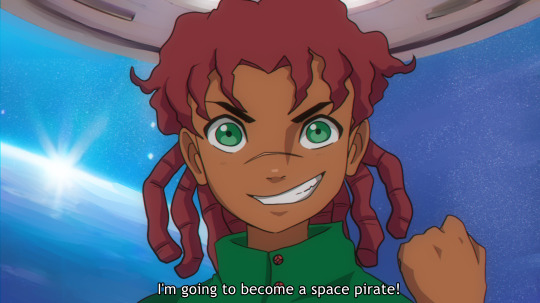
Luka, the edgy smart rival and childhood friend of the protagonist full of fangirls
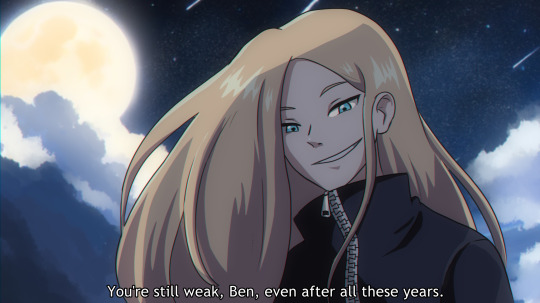
Yuri, the Trainer/mentor for a new amazing technique
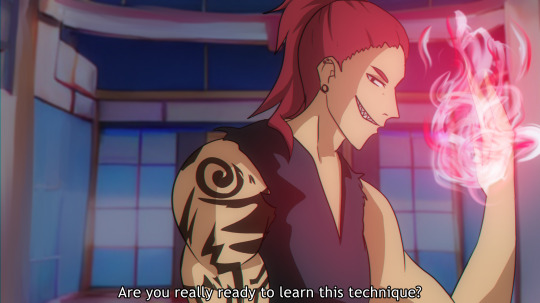
Sanni, the dhildhood friend of the protagonist that would be a good match for him, but she is just a random friend

Carla, the girl who the author wants to be the potential love interest of the protagonist just because she is beautiful

Edmond, The normal dude partner
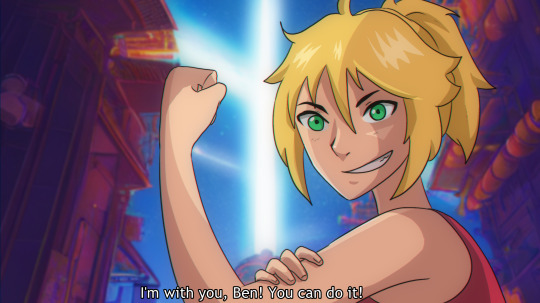
Lea, Villain ally which died during a battle
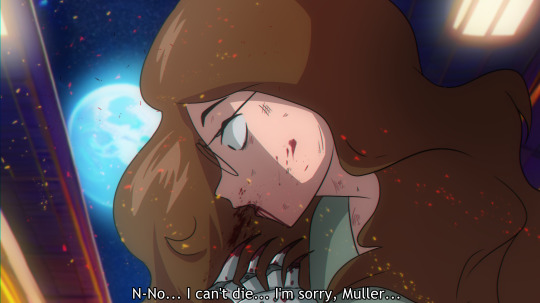
Müller, the villain who wants power to change his own destiny
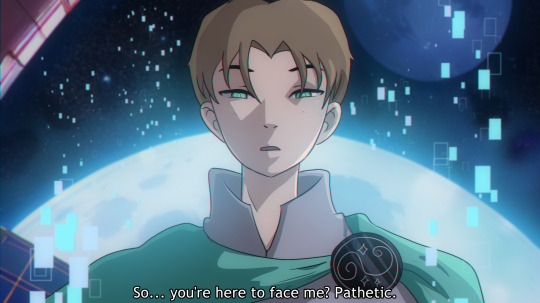
[Read Weather Child here]
#sanni#weather child#webcomic#manga#comic#edmond#chloe#content#ben#muller#lea#yuri#carla#luka#shonen#shounen#anime#pirate#AU
7 notes
·
View notes
Text
Weather Child Characters playing Sky
Sanni
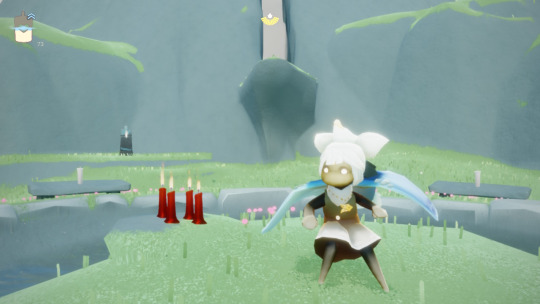
Is always using chibi mask
Chibi fall addicted
Loves OOBs and takes everybody to her favorite ones
Always wins season pass from friends
Always does the dailies in the last minute or/and forgets to deliver the dailies at home
Is always trying to play instruments... and fails
Her favorite realm is Daylight Prairie
Edmond

He plays everything correct
Never use any glitch or bug because he believes an ADM can ban his account
Is always using the new set from the week (from traveling spirits) or the new set from any season with the right clothes
He loves candle runs and is always helping as Uber to friends
His favorite realm is Valley of Triumph
Carla

Has all IAPs from game
Is always using IAPS
Her favorite IAP is Kizuna Ai package
Don’t help anyone with the doors and anything else but complain when people aren’t helping her
She loves to enter the office just to show to friends she can without let them in
Just make candle run with Edmond for fun, usually she just pay for candles
Have only hearts given from Lea and Luka, main reason why she don’t have any constellation completed
Her favorite realm inst a realm, is the Little prince secret map
Luka

Has all IAPs from the game
Has all constellations completed
Is always using moth clothes just for fun
Loves OOBs and take people to OOBs using moth clothes
Loves to be krilled
Loves to attract krill to veterans while he is using moth clothes and acting all naive
His favorite realm is Golden Wasteland
Lea

She is Ikejou
Sometimes she is Ikeman too
Is always lighting every single candle from everybody just to show her avatar
She is always creating role-plays in game like marriages, parties, picnics, etc
Her favorite realm is Vault of knowledge
Ben

He is always honking
He loves to use mixed combinations
Has a mustache collection
Loves every single social interaction
His favorite realm is Daylight prairie
Chloe
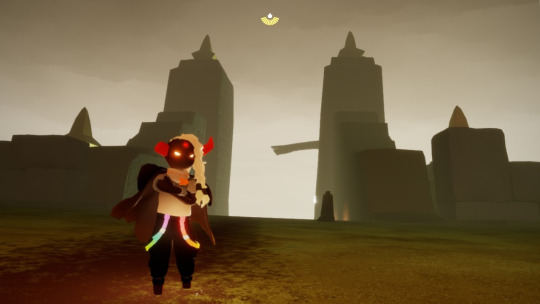
She loves to take moths to Eden and Golden Wasteland just to push them to the death
She is always using bugs and glitches
She enjoys using bugs in the game, especially when playing with Edmond, to tease him by saying that they might get banned for using them
Only play when Sanni is online, and never enter on Ann’s server because it is always full of people
Her favorite realm is Eden
Ann
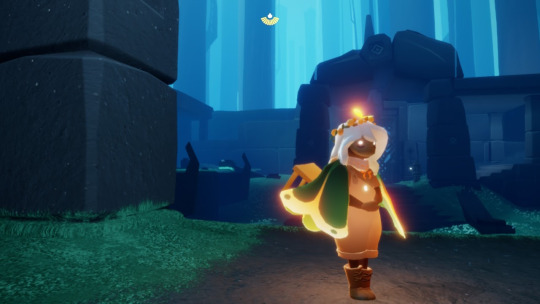
She is always helping moths
Friend list always full
Every server she is in is full of her friends
Has more hearts than candles
She bought an umbrella just to help moths in hidden forest
Her favorite season is Assembly
She is ALWAYS using the table as her main item
Her favorite realm is Hidden Forest, mainly the treehouse
Yuri

He has all Elder items and is always using them with weird combinations
Never do any candle run, just get candles from geyser or the feast
Is always showing to moths some tricks
The first place he always shows to everybody, old player or not, is the penguin costume area
His favorite realm is Valley of Triumph
Jin

Solo player
Rolls eyes when someone follows them
Skilled at flying
Always completes a full candle run for relaxation
Dislikes lighting up other players
Enjoys playing music in quiet areas
Their main items is piano and guitar
Jin is always using shattered and little prince sets
Their favorite realm is Isle of Dawn
[READ WEATHER CHILD HERE]
10 notes
·
View notes
Text

THE WILD BUNCH 1969
We all dream of being a child again, even the worst of us. Perhaps the worst most of all.
#the wild bunch#1969#william holden#ernest borgnine#robert ryan#edmond o'brien#warren oates#jaime sanchez#ben johnson#emilio fernández#strother martin#l. q. jones#albert dekker#bo hopkins#jorge russek#alfonso arau#dub taylor
3 notes
·
View notes
Text
The Wild Bunch
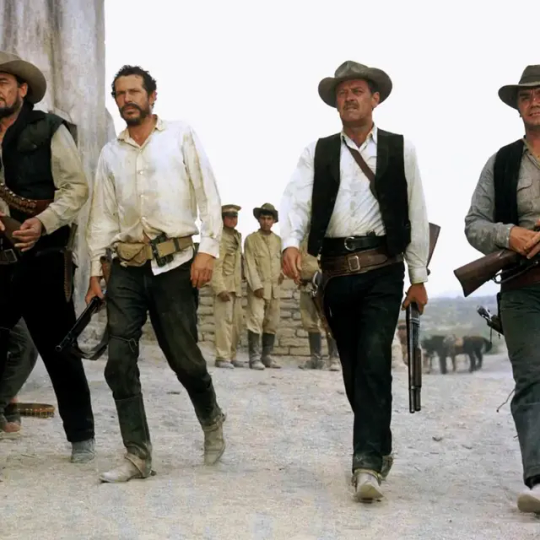
Summary: A group of ageing outlaws led by one Pike Bishop (William Holden) agree to transport arms to General Mapache (Emilio Fernandez). Hot on their trail are a group of bounty hunters led by Bishop's former partner, Deke Thornton (Robert Ryan).
Cutting-edge anti-Western that’s barely aged in last 54 years. Darkly funny and incredibly violent with much to say about latter.
Rating: 4.25/5
Photo credit: The Guardian
#the wild bunch#1969#sam peckinpah#revisionist western#epic#William Holden#Ernest Borgnine#Robert Ryan#Edmond O'Brien#Warren Oates#Jaime Sánchez#Ben Johnson#Emilio Fernández#Strother Martin#L.Q. Jones#4.25#film reviews#film review#twenty-words-or-less#twol
3 notes
·
View notes
Text
Tolerance extra blog
It could be you National lottery is 30 years old today !!!

Introduction
Hello there the national lottery celebrates its 30th Birthday today the 14th November 2024, I first came across the national lottery when Noel Edmonds hosted a 2 hour special on the event of the Lotteries first ever draw on the BBC on a Saturday night.

Here is some footage for that very event thank you Youtube (215) The First National Lottery Live - YouTube
We were all Sat Round the TV at my Nans house here is the link to some footage from that very event thanks to You tube don’t worry I didn’t win anything and nether did my brother or my mum and dad ha ha
The next time I watched a national lottery show was was a programme called amazing luck stories which featured a segment on Doctor who when episode one of the Crusade The Lion turned up in New Zealand very exciting you can watch the show by clicking here Dr Who missing episode National lottery good luck stories
Not long after that I actually won £10 on the lottery I decided then and there never to play it again my reason being this bit of luck would be my only chance at winning a decent amount of money and I would be better saving my pound coins in a money box week after week I could put them to something worth while
Awards for all The Tolerance Connection

It was in 2016 when myself and Gemma Blagbourgh approached the national lottery for help under their awards for all banner to help us provide a two day event called SAFE something artistic for every one Day one on the 4th of April 2016 we held an Art and Drama workshop.



Day 2 On April 6th 2016 Myself and Gemma relaunched the Tolerance video to a selected audience


Pictures
Noel Edmonds
Art workshop Jade Ben Gemma
Drama workshop Tablo (1)
Drama workshop Terry and Jean
Ben
Ben with Speech
If you have read this and want to learn more about the Tolerance project or give us a small donation click here
This blog is respectfully dedicated to Jean Randerson
#ben brown#Gemma Blagbourgh#jade briggs#National Lottery 30th Birthday#Awards for all#Noel edmonds#National Lottery Amazing luck stories#Doctor who The Crusade#The Lion#Jean and Terry
0 notes
Text
9 maggio … ricordiamo …
9 maggio … ricordiamo … #semprevivineiricordi #nomidaricordare #personaggiimportanti #perfettamentechic
2023: Joaquin Romaguera, Joaquin Fidel Romaguera, attore e tenore statunitense. Artista di lunga data con la New York City Opera dagli anni ’60 agli anni ’80. Romaguera ha iniziato la sua carriera all’età di 18 anni. Il compagno di vita di Romaguera è stato il parrucchiere di Broadway Robert W. Cybula. (n. 1932) 2020: Geno Silva, attore statunitense. (n. 1948) 2020: Antonio Palazzi, gastronomo…
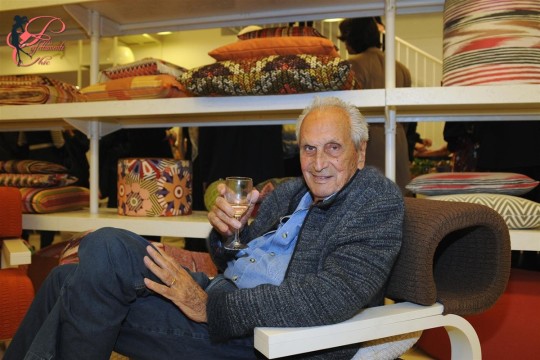
View On WordPress
#9 maggio#Alan King#Alice Faye#Carmen Filpi#Danilo De Girolamo#Dolores Fuller#Edmond O&039;Brien#Elizabeth Wilson#Fatima Ben Embarek#Finlay Currie#Finlay Jefferson Currie#Geno Silva#Irwin Alan Kniberg#Joaquin Fidel Romaguera#Joaquin Romaguera#Lena Horne#Marco Ferreri#Margaret Kies#Margaret Lindsay#Marion Lorne#Marion McDougall#Mary Duncan#Michael Parks#Morti 9 maggio#Ottavio Missoni#Personaggi famosi 9 maggio#Quentin Dean#Quintin Corinne Margolin#Raimondo Van Riel#Ricordando ..
0 notes
Text
WHITE HEAT:
Mama’s boy gangster
Brings law a hail of bullets
On Top of the world
youtube
#white heat#random richards#poem#haiku#poetry#haiku poem#poets on tumblr#haiku poetry#haiku form#poetic#gangster movies#james cagney#virginia mayo#edmond o'brien#Margaret wycherly#raoul walsh#Ivan Goff#Ben roberts#Virginia Kellogg#Youtube
0 notes
Text
The Wild Bunch (1969)
It’s 1913, and the “traditional” American West is dying. Amongst the inhabitants of this dying era are a gang known as “the wild bunch.” After a failed railroad office robbery, the gang heads to Mexico to do one last job. Seeing their times and lives drifting away in the 20th century, the gang takes the job and ends up in a brutally violent last stand against their enemies deemed to be corrupt,…
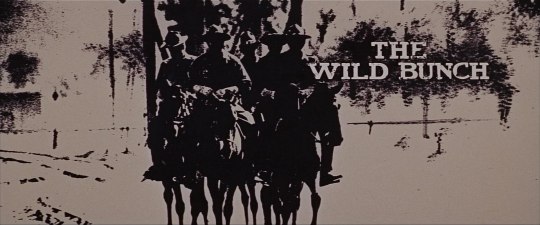
View On WordPress
#Ben Johnson#Edmond O&039;Brien#Emilio Fernández#Ernest Borgnine#Jaime Sánchez#L.Q. Jones#Robert Ryan#Sam Peckinpah#Strother Martin#Warren Oates#William Holden
0 notes
Text
𝟅𝟈 some of my dr's ! welcoming potential mootties, lets chat <3 | last updated: 012725 8:16pm
✰ anime
⚘ one piece , (1st) genevieve e. blue , 17 , s/o: trafalgar d. waterlaw , trope: captain/crewmate -> lovers (slow burn) , devil fruit: (kūki kūki fruit)air manipulation / (2nd) alira andilet , 18 , s/o: blackleg sanji , trope: crewmates -> lovers (slow burn) , devil fruit: (dangan dangan fruit) bullet manipulation
⟡ blue lock , satoru jena , 17 , s/o: micheal kaiser (slow burn) , family: gojo, geto (parents) + 4 siblings, team: blue locks eleven
𖦹 mha , gojo satori (yes) , 18 , s/o: bakugou katsuki , trope: strangers -> pining -> lovers (slow burn) , hero name: arachne , power: spider , family: satosugu & their 4 kids
⊰ jjk , taira kazuha , 19 , s/o: nanami kento , trope: mentor -> friends -> lovers , technique: string & invisibility manipulation , domain expansion: illusion of fear & desire , family: ren & kyoto taira (parents) kenji taira (brother)
꧞ haikyuu , ukai kananami , 15 , s/o: tsukishima kei , trope: strangers -> friends -> lovers , family: kaito & ben ukai (parents) ukai keishin (brother) , team: karasuno boys volleyball
␥ aot , geneviève ackerman , 15 , s/o: jean kirstien , trope: strangers -> enemies -> friends -> lovers , family: charlotte & oliver ackerman (parents) levi ackerman (uncle) , humanity's second strongest soldier :P , role: the savoir
⊞ atla , aoki kazuha , 16 , s/o: un-named oc , trope: strangers -> lovers , family: aki & rolan aoki (parents) kian & kano (brothers) , element: all , main: air, avatar of 3000 (?)
✰ shows
❀ obx , geneviève lambert , 17 , s/o: rafe cameron (not psycho) , trope: childhood friends -> "enemies" -> friends -> lovers , family: lyla lambert (mom) logan westwood (step dad) , role: man in the middle
⪩ twd , charlotte grimes , 21 , s/o: daryl dixon (32) , trope: strangers -> lovers , family: oliver & evie grimes (dad & mom) rick grimes (uncle turned dad) carl grimes (cousin turned brother) judith (cousin turned sister) , main weapon: dual blades
✵ bcd (/behind closed doors ; original reality) , katara brown , 18 , s/o: nakamoto arito (oc) , trope: strangers -> friends -> lovers (slow burn) , occupation: assassin in training , role: the finalist
✰ games
✶ genshin impact , (1st) princess enver le'mistral , 21 , s/o: kaedehara kazuha (?) , trope: strangers -> playful enemies -> lovers , vison: anemo , home: sky city (og) + fontaine , family: nalani & alain le'mistral (parents) navida le'mistral (aunt) , position: champion dualist / (2nd) tashita jinx - [under construction]
キ overwatch , ruben dawn , 35 , s/o: cole cassidy , trope: friends -> lovers , weapon: sword , family: mom , occupation: former blackwatch member, current ow member, frontliner
⟢ love and deepspace , (1st) anastasia blair mintz , 20 , s/o: rafayel , family: older brother (not caleb) , evol: water + resonance , occupation: deepspace hunter / (2nd) clementine , 22 , s/o: caleb , family: 'grandmother' , evol: resonance + fire , occupation: deepspace hunter
✰ other
✦ youtuber , (1st) geneviève eden silvestrè , 18 , s/o: n/a , trope: n/a family: evangeline & antonio silvestrè (parents) leo + angelina + dom (brothers & sister) / (2nd) imani eden monroe , 21 , s/o: berlin edmond , family: nilani monroe (mom) angelica & clementine (sisters)
◎ footballer , violet dupont , 21 , s/o: elisa de almeida , trope: teammates -> lovers , family: jamais dupont (dad) claude & blaise dupont (brothers) , team: psg feminines + women's french national
☆ actress , (1st) violette eden irl last name , 20 , s/o: drew starkey , trope: costars -> lovers , family: leila (mom) anastasia & june (sisters) , main roles: charlotte in obx + edith in despicable me + peyton in the game plan / (2nd) valerie eden auclair - [under construction]
𐙚 kpop , (1st) jenevieve eden levesque , 19 , s/o: christopher bang , trope: strangers -> friends -> lovers , year: 2020 , family: nilani levesque (mom) leo + angelina + dontai + alias + charlotte monroe (siblings :3) , groups: nct, nct 127, nct x / (2nd) - [under construction]
ᡣ𐭩 teen fame , genevieve eden morgan , 14 , s/o: elisa de almeida (15) , trope: friends -> lovers , family: jeffery dean morgan (dad) , main rolls - [under construction]
一 that's all ! if you have any same / similar dr's feel free to talk about them or dm me so we can !! (i desperately need to see satosugu happy if you can't tell)
❥ i didn't mention my waiting room cause that'll be another post, but it's basically a city shifting hub / giant waiting room for shifters from all different realities ! lemmie know if you wanna hear about it :)
#⋆𐙚 ₊ ° ⊹ ♡ pretty princess shifting library#reality shifting#shifting#reality shifting blog#shifting motivation#shiftblr#shifting blog#aot shifting#one piece shifting#jjk shifting#blue lock shifting#mha shifting#haikyuu shifting#atla shifting#obx shifting#twd shifting#og reality#original reality#genshin shifting#youtuber dr#footballer dr#actress dr#kpop dr#teen fame dr#my drs#overwatch shifting#overwatch dr
159 notes
·
View notes
Text


Haziran ayı okuduklarım :
Monte cristo kontu : "İntikam soğuk yenen bir yemektir. " Edmond Dantes adındaki bir gence iftira atılması sonucu yaşadığı zorluklar, ve yıllar sonra Edmond'un o kişilerden aldığı intikamı anlatıyor. Kelimeler kitabı anlatmaya kifayetsiz kalıyor (kitabı okumak biraz zorluyor isim çokluğundan dolayı ben kitabı bitirdim ama hala o kimdi dediğim kişiler var.) Ben okurken zorlandım klasik okurken okuyacağınız İlk kitaplar arasında bu olmamalı
10/10
Bir Kürt sevdim : Doğulu bi erkeğin, Balıkesirli bi kıza aşık olması bunların mükemmel tatlı aşkların. Tabi ülkemizde sorun olan kürt - doğulu çatışması sonucu evlenemeyen mutsuz sonla biten gerçek bi hayat hikayesi...
Hoş tatlı bi aşk kitabı ben bu kitapların arasında okudum çok güzel duygusal ağlatan hayal kurduran bi kitap bi çırpıda bitirirsiniz 💫
10/10
61 notes
·
View notes
Text

Brave & The Bold #85 - August 1969 (DC Comics - USA)
Cover Art: Neal Adams
THE SENATOR'S BEEN SHOT
Script: Bob Haney
Art: Neal Adams (Pencils & Inks), Ben Oda (Letters)
Characters:Batman [Bruce Wayne]; Green Arrow [Oliver Queen]; Paul Cathcart; Edmond Cathcart; Miklos Minotaur; Munson
Synopsis: Both Batman and Green Arrow, in their alter egos, are attacked by Miklos Minotaur and have to decide if they can do more good by stopping being superheroes.
Batman story #1,285
14 notes
·
View notes
Text

Omori crossover
OYASUMI~
[Read Weather Child here]
3 notes
·
View notes